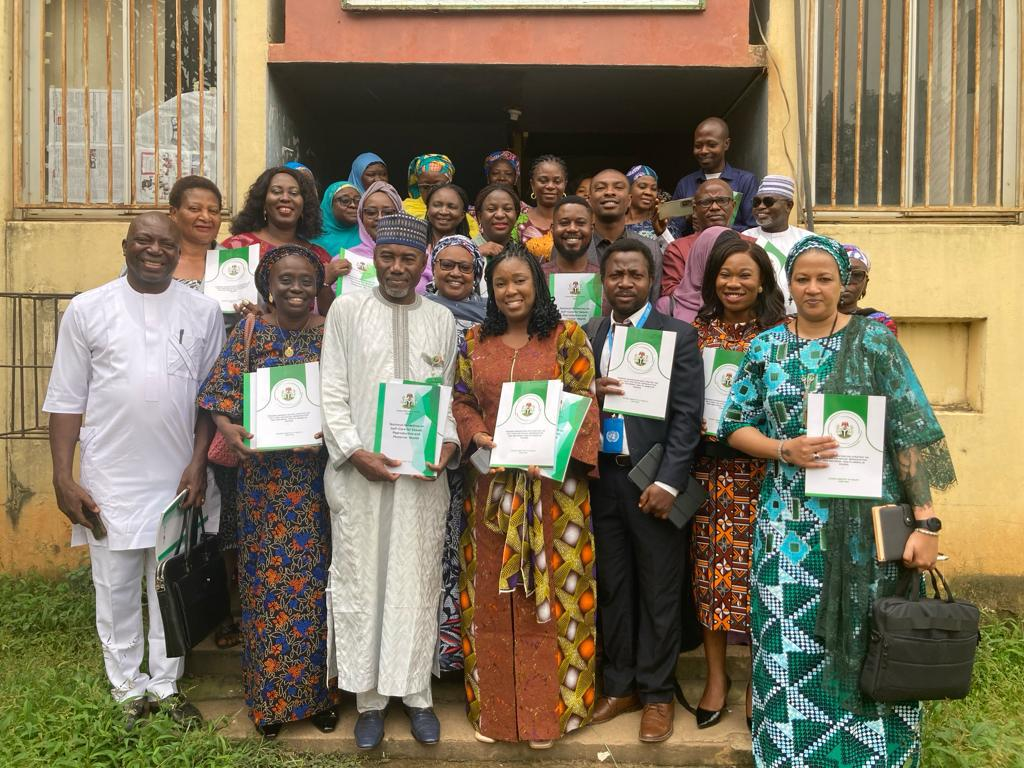Self-care interventions are one of the most promising and exciting new ways to improve health and well-being, both for those who use them and from the perspective of the health systems. Although the term "self-care" is not new, the range of interventions previously provided by healthcare providers is now more accessible and easier for individuals to acquire and manage. When combined with appropriate normative guidance and a supportive and safe environment, self-care interventions offer an exciting and practical path forward to achieve a variety of improved outcomes.
The World Health Organization (WHO), defines ‘self-care’ as the ability of individuals, families, and communities to prevent illness, promote health, maintain well-being, and cope with health challenges, with or without the support of healthcare providers.
Since the inception of self-care concept in Nigeria, significant progress has been made through the concerted efforts of Federal Ministry of Health, White Ribbon Alliance Nigeria and other Multi-stakeholders.
Progress update on Self-care
Development of National Self-care Guideline and Demand generation Strategy: Following the release of the World Health Organization's (WHO) Consolidated Guidelines on Self-Care Interventions for Health: Sexual and Reproductive Health and Rights (2019), which was the first global normative guidance on self-care interventions, and in the pursuit of universal health coverage, the Federal Ministry of Health (FMOH) of Nigeria launched a series of initiatives that resulted in the creation of the National Guidelines on Self-Care for Sexual, Reproductive, and Maternal Health, 2020. The process comprised setting up a multi-stakeholder group under the FMOH and holding in-country advocacy consultations from July 2019 to January 2020. The group which involves White Ribbon Alliance Nigeria gave the development of the self-care guidelines top priority as a prompt response to the COVID-19 pandemic and a possible path toward achieving universal health coverage.
To further complement the NSG, the demand generation strategy was developed to ensure strategic engagement and promotion of self-care across the country especially to hard to reach communities. This strategy consists of various communication components and plans of advancing self-care across all age groups and utilizing varying mediums.

Image: FMOH, WRAN & partners visit to the Acting Execvutive Sectary of FCT PHC Board
Inauguration of Self-care Advocacy Network (SAN): The self-care Advocacy Network (SAN) which comprises of the Ministries, Civil Society organizations, health groups, Women, religious groups, youth-led were inaugurated on the 20th of July, 2023. For the advancement of self-care across the 36 states of the country, the SAN plays a crucial role in ensuring that people have access to self-care interventions and products.
Development of Country Monitoring the Dashboard: The country has made giant strides in self-care and it is crucial that progress is tracked and measured. Hence, White Ribbon and other partners led the formation of the Self-care monitoring and evaluation committee with the responsibility to develop the country monitoring dashboard and utilize it to measure progress.
Self-care in humanitarian settings: To further promote self-care in the fragile and humanitarians settings, White Ribbon Alliance Nigeria and International Rescue Mission (IRC) in collaboration with Federal ministry of health and other partners carried out the dissemination of the NSG and stakeholders consultation in Borno State, Nigeria. Efforts are currently being made to promote self-care in other humanitarian settings such as Niger State.
Key actors/stakeholders in SC: Stakeholders and partners of self-care in Nigeria have made significant progress to promote self-care across the country through collaborative efforts. The Federal Ministry of Health coordinates and works with White Ribbon Alliance Nigeria, JSI, WHO, SFH and other stakeholders which comprises of the Self-care Advocacy network members are committed to advancing self-care in various communities.
Conclusion: Self-care is a critical component to achieving Universal Health Coverage and reaching the SDG2030 goals. Nigeria must prioritize and invest in self-care through collaborations, effective policies, and health system strengthening and community engagement. White Ribbon Alliance Nigeria remains committed to promoting self-care through advocacy efforts and interventions.

